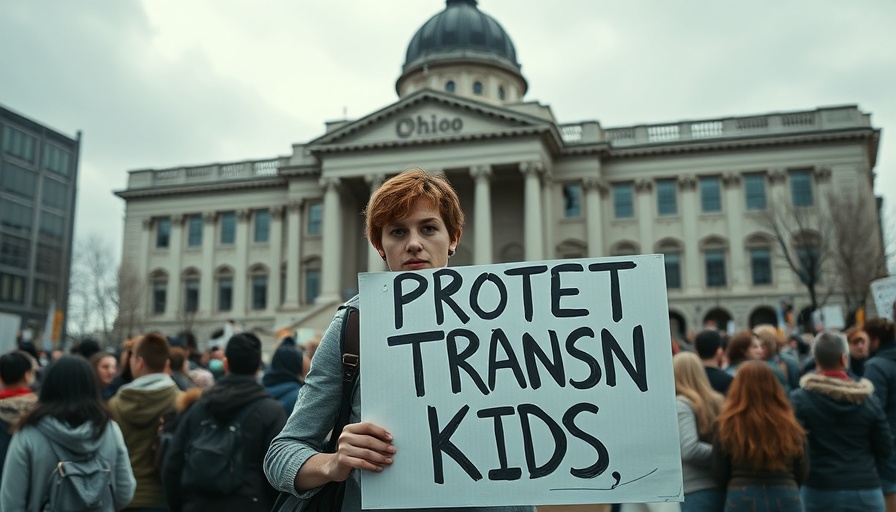
Understanding the Ohio Pronoun Debate: A Legal Showdown
In a climate where rights and identities are hotly debated, a recent legal dispute in Ohio is drawing national attention, as a federal appeals court in Cincinnati grapples with the implications of a suburban school district's pronoun policy. The heart of the matter lies in whether students can be compelled to use peers’ preferred pronouns in school settings, reflecting wider societal tensions regarding gender identity and free speech.
A Closer Look at the Policies Involved
The Olentangy Local School District, at the center of this conflict, has instituted policies that encourage the use of preferred pronouns and prohibit the use of derogatory gender-related language. This can be defined as anything that another student might find insulting based on their gender identity. These policies extend to electronic communications, creating a framework that aims to foster an inclusive environment for all students, particularly those who may identify as transgender or non-binary.
The Stakeholders: Rights Groups Weigh In
As this case progresses through the legal system, diverse voices are weighing in. Groups such as Parents Defending Education are advocating for the rights of parents who wish to express their beliefs about gender coherently and without feeling compelled to contravene their personal or religious beliefs. On the other hand, LGBTQ+ advocacy groups and various civil rights organizations continue to champion the school district’s policies as essential protections for students' identities.
Implications of the Ruling: A Crossroads for Youth Rights
The implications of the court's decision could be momentous for similar disputes across the country. If the court rules against the Olentangy Local School District, it could embolden other conservative groups seeking to roll back inclusivity policies nationwide. Conversely, a ruling in favor of the school might reinforce the legal legitimacy of such policies, setting a precedent for protecting the rights of students to express their gender identity openly.
Voices from the Community: Perspectives from All Sides
The community's response to this case reflects the deep divisions on this topic. Supporters of the policies argue that they create safer spaces for students who often face bullying and discrimination. Opponents express concern that these policies conflict with their understanding of traditional gender roles and impose ideological beliefs. This tension encapsulates the broader cultural debates that continue to unfold across the nation.
What’s Next for the Olentangy School District and Beyond?
As the case reaches its conclusion, one thing is clear: this legal battle extends beyond simple school policy. It is part of a broader national conversation about the rights of individuals, the role of education in shaping societal norms, and the balance between free speech and inclusivity. The court's eventual decision could reshape not just local schools but also national educational policies.
This ongoing discourse invites all community members to reflect on where they stand on issues of identity, rights, and education. It’s a reminder that, while navigating these complex waters can be challenging, ensuring that all voices are heard is essential to fostering understanding and respect in our communities.
 Add Row
Add Row  Add
Add 




 Add Row
Add Row  Add
Add 








Write A Comment